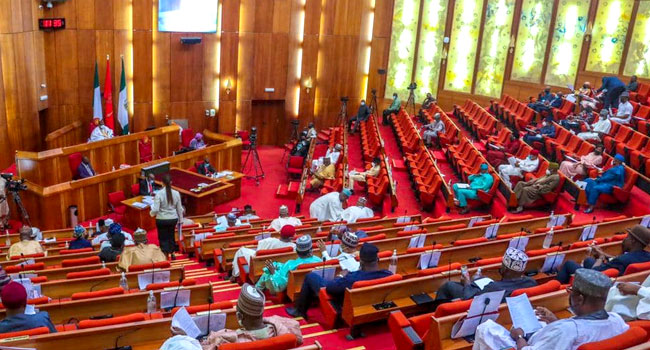Ahead of the 2027 elections, the Senate is set to amend the Electoral Act to allow for diaspora voting, at least for presidential elections, to enable citizens, especially those on essential service abroad, to vote.
The Senate in a communiqué issued at the end of its retreat in Ikot Ikpene, Akwa-Ibom State, also resolved to make electronic transmission of results mandatory from the next general elections in 2027, including the uploading of polling unit-level results and result sheets used at different levels of result collation.
In events preceding and after the election that brought President Bola Tinubu into power, there were a lot of agitations to allow Nigerians abroad to take part in the elections.
Also, a number of Nigerians called for the electronic transmission of results from the BVAS machine.
The Senate noted that it was necessary for the Independent National Electoral Commission to be unbundled to improve its efficiency and effectiveness in the preparation and conduct of elections.
The communiqué stated, “Relating to the use of technology in elections, remove the ambiguity evident in Section 64 of the EA22. Also, make electronic transmission of results mandatory from the next general elections in 2027, including the uploading of polling unit-level results and result sheets used at different levels of result collation.
“Introduce diaspora voting, at least for presidential elections, to enable citizens to vote, especially those on essential service abroad, such as military, paramilitary, and other security personnel abroad, Embassy staff, and other citizens.
“Relating to political parties; stipulate sanctions for failure to submit the register of party members not later than 30 days before the date of party primaries, congresses, or conventions in relation to Section 77(3) EA22, which the political parties have observed in the breach in the 2023 elections without penalty.”
The 10th Senate further noted that it was time to develop and enact a comprehensive national security strategy that outlines the nation’s security objectives, threats, and policy priorities.
The Red Chamber added that such a strategy could serve as a guiding framework for legislative action in the security sector.









